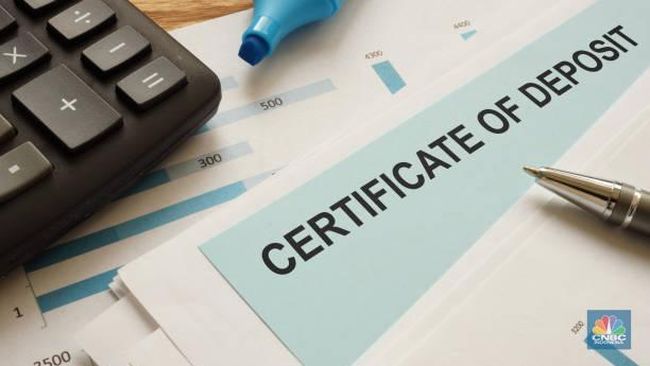
Mortgage rates can change daily and even hourly.
Tharon Green/CNETThere's a growing consensus among housing market experts that average mortgage rates will stay above 6.5% this year. Uncertainty over the impact of President Trump’s economic policies continues to cause daily volatility in the mortgage market.
On Tuesday, the average rate for a 30-year fixed mortgage was 7.02%, according to Bankrate, compared to around 6.75% at the start of May.
The increase followed a surge in Treasury yields in the bond market. Since the 30-year mortgage rate closely tracks the 10-year Treasury yield, we generally see higher rates for home loans when yields go up.
Lisa Sturtevant, chief economist at Bright MLS, said the uptick in Treasury yields can be attributed to rising federal government debt levels and Moody's recent downgrading of the US credit rating. Bond yields had been on the rise even before last week, fueled by a combination of risk factors, including the inflationary impact of tariffs.
“Growing uncertainty is going to make this a slower-than-typical spring housing market,” said Sturtevant.
Expensive mortgage rates and record-low affordability have plagued the housing market since 2022. Even those who can afford to buy in today’s market are waiting. The psychological impact of economic instability holds prospective buyers back.
“When people are anxious, they are less likely to make big decisions, like buying and selling a home,” Sturtevant said.
Bond yields and tariffs are affecting mortgage rates
Sturtevant noted that US Treasury bonds have traditionally been considered a safe haven during economic uncertainty. However, investors have recently been pulling back from them due to perceived risk, causing bond prices to fall and yields to go up.
Though bond yields inched down slightly this week, they’re well above the levels we saw in March, before the president announced plans for sweeping tariffs. Analysts expect domestic companies to pass expensive tariffs onto consumers in the form of higher retail prices, which would kick inflation back up.
With the details of Trump’s budget bill still being debated and tariffs negotiations ongoing, we're likely to see more economic volatility over the coming weeks and months.
“Financial markets hate uncertainty. If it’s not the budget, it’s the tariffs,” said Melissa Cohn, regional vice president at William Raveis Mortgage.
Overall, prospective homebuyers should expect mortgage rates to remain elevated, with any dips likely to be small and temporary.
“It’s a rollercoaster that seems to be trending higher versus lower,” Cohn said.
Can mortgage rates still fall in 2025?
While longer-term housing market forecasts call for a gradual decline in borrowing costs over the coming years, the potential for sub-6% mortgage rates in 2025 is slim.
Financial experts caution that higher inflation due to Trump’s tariffs could derail the Federal Reserve's anticipated rate cuts. Though the central bank doesn't directly set the rates on home loans, its monetary policy changes have a ripple effect on the housing market.
Fed officials cut interest rates three times in 2024 because of slowing inflation, making borrowing costs slightly less restrictive. However, the Fed has been in a holding pattern since then, waiting to see the long-term implications of Trump's policies before it cuts rates again.
Earlier in the year, market watchers expected as many as four or five rate cuts by the Fed in 2025. Now, the prospect of even one or two rate cuts is diminishing. “The Fed's not going to do anything because now they have to continue to wait because of additional prolonged uncertainty,” said Cohn.
Given where inflation and the economy are right now, markets are no longer predicting a rate cut this summer. “However, the situation could change quickly if there are new announcements out of the Trump administration or if global economic conditions weaken,” said Sturtevant.
In other words, unless there's a fresh downshift in the inflation trend or a sudden weakening of labor conditions, which would prompt the Fed to ease policy, mortgage rates will remain close to 7% for a while.
Tips for navigating an uncertain housing market
Mortgage rates haven't moved steadily in one direction over the last few months, and that shakiness is likely to continue, according to Hannah Jones, senior research analyst at Realtor.com.
If you're waiting for mortgage rates to come down before buying, keep in mind that the large-scale economic issues affecting the housing market are beyond your control. However, there are ways to bring down your individual mortgage rate.
"With borrowing costs elevated, buyers can take steps to reduce their housing expenses by securing a lower mortgage rate," said Jones.
For example, being financially prepared and shopping around for lenders can save borrowers up to 1.5% on their mortgage rate. Since each lender offers different rates and terms, comparing offers from multiple lenders can also help you negotiate a better rate. If you can't snag a low rate but are ready to buy, you can always refinance down the road.
Jones said other strategies for lowering your mortgage rate include improving your credit score, making a larger down payment or choosing a more affordable home.
When weighing the pros and cons of homeownership, experts recommend making a homebuying budget and sticking to it. Creating a realistic financial plan can help you decide if you can handle the costs of homeownership and provide you with some figures for how large your mortgage should be.
Watch this: 6 Ways to Reduce Your Mortgage Interest Rate by 1% or More
02:31
More on today's housing market
- How the Federal Reserve's Decisions Affect Mortgage Rates
- Why Fed Rate Cuts Aren't a Cure-All for High Mortgage Rates
- Most Homebuyers Won't Budge Until Mortgage Rates Drop to 4%, CNET Survey Finds
- You Might Be Eager to Buy a House, but Homeowners Are Holding Tight to Their Mortgages
- Despite Lower Mortgage Rates, Another Refinancing Boom Isn't Likely. Here's Why
- Forget Mortgage Rates. Americans Say They Can't Even Save for a Down Payment

 3 months ago
51
3 months ago
51














































